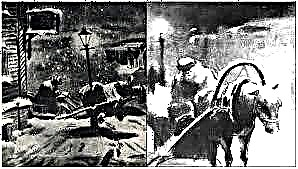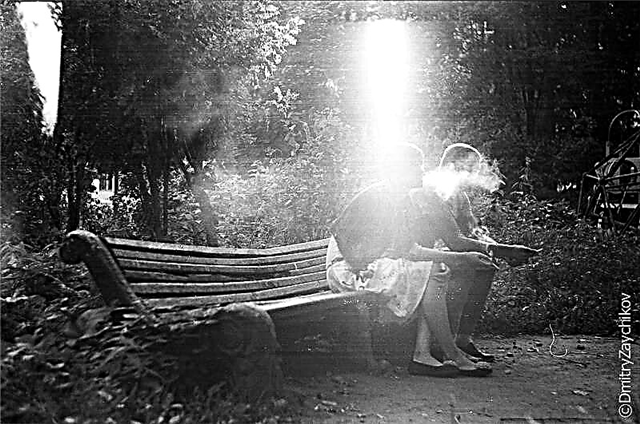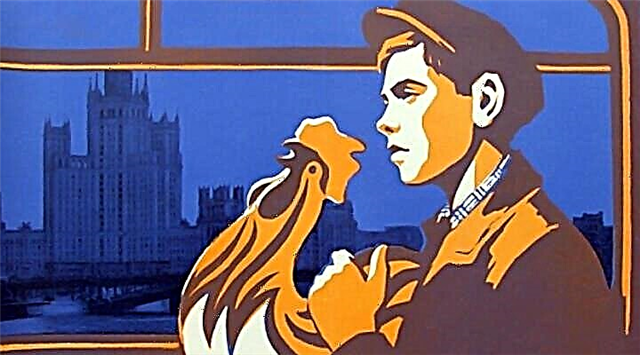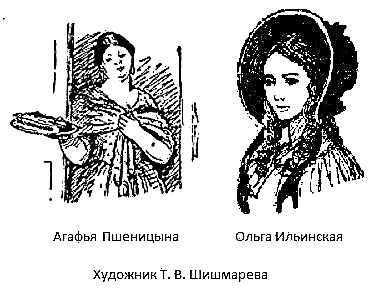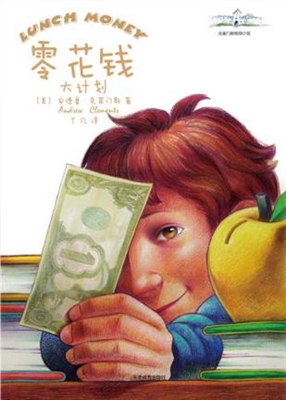There is not a single poet who would not reflect on the problem of the purpose of the creator, on his essence, his mission on this earth. Alexander Sergeyevich Pushkin was no exception. In his work, a significant place is given to the theme of poet and poetry. “The Prophet”, “Echo”, “Monument” - only a small part of the whole variety of works in which this topic was reflected. In this article we will analyze the poem "Poet", where the author also spoke about the role of the person of art in the life of the whole world.
History of creation
The poem was written in 1827, when the poet arrived in Mikhailovsky, with whom A.S. Pushkin was connected all his mature life: here he was in exile, here he worked.
In 1826, Aleksandr Sergeyevich’s exile at Mikhailovsky ends, but the very next year the poet himself comes here from St. Petersburg to take a break from the social life of the capital and engage in free creativity. During this period, he writes a lot, concocts his first work in prose "The Arap of Peter the Great." In the village silence, the poet’s muse woke up, soared, and the poem “Poet” very accurately reflects such a fantastic awakening of the poet when he turns from a driven man in the street into a Prophet.
Genre, size and direction
The genre work “Poet” is a lyrical poem. The work was written on behalf of the author, who tells about the features of such unusual people as creators. According to the author, an outstanding person may not be noticed in the crowd, but until Apollo’s hand touches him. When he plunges into the world of muses, he is completely transformed. The world around him is changing.
The poem can be clearly divided into two parts: a person in the real world, the philistine world before it touches the "divine verb"; and a poet in the world of creativity, in the realm of the god of music and the arts. So, this work can be attributed to romantic lyrics. One of the characteristic features of romanticism is the principle of double peace, which we observe in the poem "Poet".
The size of the work is a four-foot iambic, with the help of which an even, smooth rhythm is created. The poem begins to be perceived as a parable. When you say the word “parable”, a gray-haired old man is drawn immediately in his imagination, who calmly and calmly tells of some beautiful and wise story. So it is here. Alexander Sergeevich created the atmosphere of a beautiful legend that hypnotizes with its smoothness, immerses the reader after the lyrical hero in the world of dreams and muses.
The main characters and their characteristics
At the center of the poem is a poet who appears before his readers in his two forms. At first he is miserable and insignificant, he is part of the gray mass:
In the cares of the vain light
He is cowardly submerged;
But one has only to “the divine verb” to touch the soul of the poet, he blossoms, he awakens from sleep. Now he does not want and cannot live as before, he is not ready to put up with a philistine existence, petty interests and material concerns are alien to him. If earlier he was the same, he was blind, now he has received his sight, he is suffocating in the world of self-interest and lies. He runs away from this bustling world to freedom, space, freedom!
Themes and Issues
- In his poem, A.S. Pushkin addresses one of the most important topics for the poet himself, this theme of creativity, the transformation of man, which became possible thanks to art. Alexander Sergeyevich shows how the muse can change life with one movement, one breath.
- In addition, the poet raises the problem of "blindness" of society. The first part of the work is dedicated to her. The world is indifferent, mercantile, insignificant. This is the person with a sleeping soul, an indifferent person. A poet cannot be like that, he reacts sharply to everything that is happening around him, he sees the depravity of the people around him and cannot put up with it. And the world, which seemed familiar, opens up in a new unsightly light.
Above all, A.S. Pushkin tells about the specifics of inspiration: the muse comes and leaves the poet, she is independent, she is masterful.
Meaning
In the poem, as has already been said, two parts are distinguished: life is “blind” with a sleeping soul and the destiny of a man who has received his sight, who does not overshadow household trivia from the meaninglessness of vegetation, who is ready to directly and boldly face all adversities. This is the ideal of personality, Pushkin sings of it. The main idea of the work is not even that the author exalts his skill, but that any person can and should strive to become higher than everyday and everyday little things, which often replace all spiritual needs. It is necessary not to close our eyes, not to reconcile ourselves with evil, but to go against it, so that other people will see that it is necessary to change the situation for the better.
So, the poet calls for indifference. The poet soared like an eagle as soon as he could hear the “divine verb”. The main thing is to be able to open your soul to this voice, which will reveal the world to you in all its manifestations.
Means of expression (trails)
In the poem "Poet" A.S. Pushkin uses such expressive means as metaphors (“his holy lyre is silent,” “the soul eats a cold dream”), which create a poetic image of something awesome. We see that the "holy lyre" is silent. When the saints are silent, the demons begin to rule. The soul does not just sleep, but rather “tastes,” which creates the impression of a philistine satiety, idle well-being. She is satisfied with the comfort of her blind existence, she is alien to aspirations and dreams, strong emotions and feelings.
The epithets used by the poet are interesting (“sacred sacrifice”, “vain light”, “cold dream”, “divine verb”). They emphasize the main principle of building a poem. The work is built on the antithesis: the first part is vanity and darkness, the second is light, illumination.
Also, the author uses the inversion at the beginning of the poem (“Until the poet demands / To the sacred sacrifice of Apollo”), which already tells the reader that the author will tell us what happens to the poet at the moment of inspiration. She also indicates the temporality of the poet's stay in this sleepy, dead state, we believe that sooner or later his soul will wake up.
Criticism
The fate of A.S. Pushkin was not simple: he spent most of his conscious life in exile. And in this poem, “The Poet,” Alexander Sergeyevich wanted to express a thirst for freedom of creativity, to show that the poet is not his own master, he is dominated by creativity, muses, art.
K A.S. Pushkin was treated differently: some admired them, others did not accept the poet's fame on the scale that the former attributed to him. For example, he was critically criticized by Thaddeus Bulgarin, editor of the government magazine Northern Bee.
I would like to end with the words of the Russian poet and literary critic Appolon Alexandrovich Grigoriev:
A "poet" appeared, a great creative force appeared, equal in inclinations to everything that in the world was not only great, but even the greatest: Homer, Dant, Shakespeare, - Pushkin appeared ...



